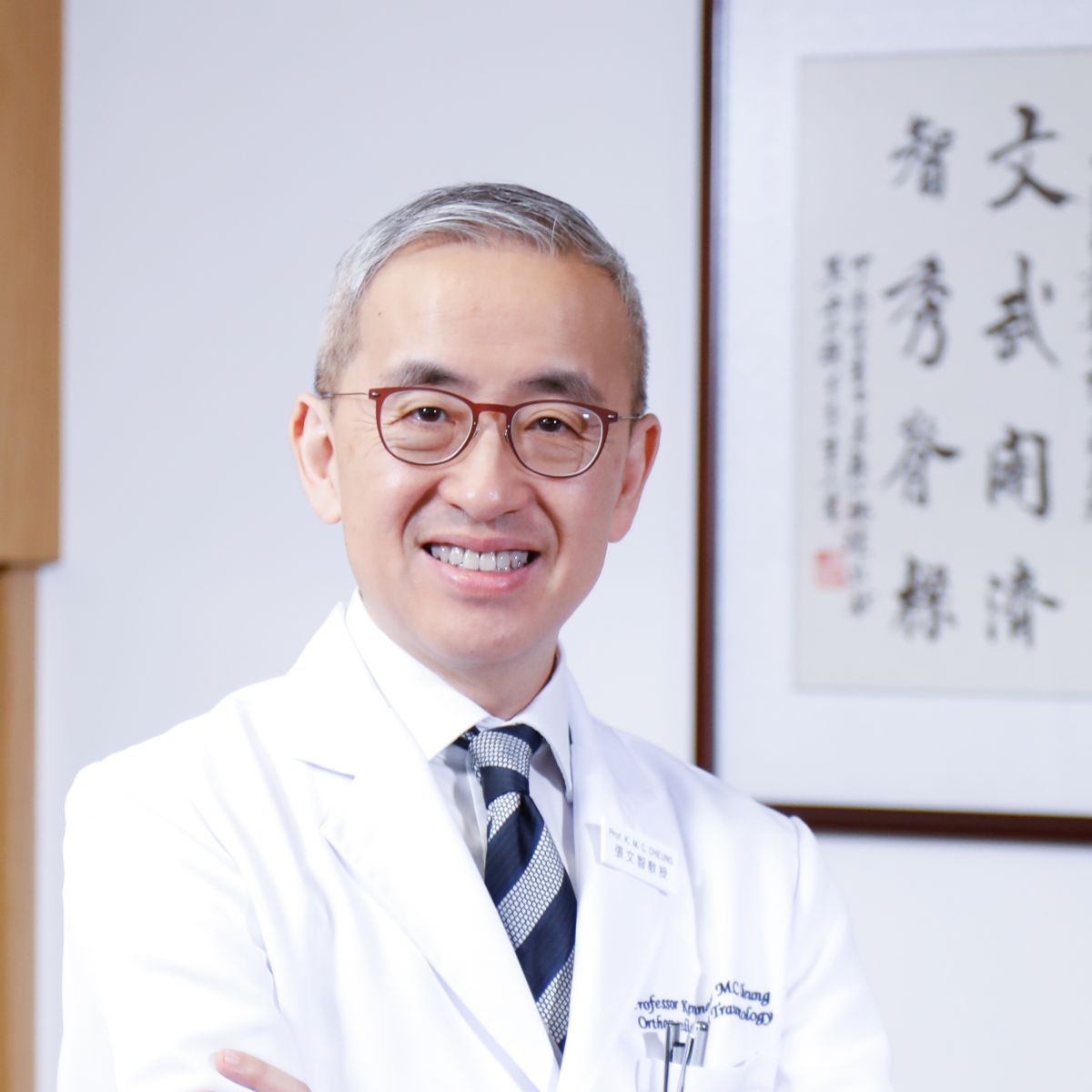Bringing New Lives to Patients by Innovation
Professor Kenneth Cheung, Jessie Ho Endowed Professorship in Spine Surgery, Chair Professor and Former Head of Department of Orthopaedics and Traumatology of The University of Hong Kong, is a pioneer in medical research. While he has treated a lot of patients, he aims even higher: “A doctor may be able to treat thousands or more patients in his career, but a successful clinical study can change the treatment practice for the whole world and create much bigger impact by helping millions of people.”
Clinical Research Brings Large Impacts
The orthopaedics specialty in Hong Kong is internationally recognized. Professor Cheung has carried on the specialty’s fine tradition, but is also a pioneer in innovation. Inspired by his father, he committed himself to the medical profession and kept carrying out research in pace with the development of orthopaedics over the past decades. “Not all diseases are curable, but we may learn more about a disease and explore new treatments through medical research.” Professor Cheung therefore spends a lot of time on sharing experience with international experts in order to introduce new treatment methods derived from research. Being engaged days and nights in clinical services, teaching and video-conferences becomes a routine for Professor Cheung, but he enjoys this busy whilst meaningful life.
Researching for Patients
To Professor Cheung, patients may also become his friends. “I saw her from her age of five to now fourteen, and I chatted with her during each regular follow-up. I wish to attend her wedding one day,” said Professor Cheung, when he proudly shared the world’s first case of using a “magnetically controlled growing rod” for spinal correction. The growing rod was designed for early-onset scoliosis, with the huge advantage of eliminating patients’ suffering from regular surgical operations. “In the past a patient has to undergo an operation on the back every six months in order to extend an implanted metallic rod. Now the growing rod can be adjusted easily by using a magnetic device during a patient’s monthly follow-up visit. The process only takes 30 seconds and is painless.” This new method not only treats his patients’ physical conditions but also their well-being. Professor Cheung encourages the public to participate in clinical trials: “Medical research in Hong Kong is top-notch. In particular, most orthopaedic trials do not involve placebo groups and hence are more straight-forward.”
Dedicated to Independent Research
On the other hand, Professor Cheung’s team have also spent over ten years on developing the “memory alloy rod” (also known as the “smart rod”) as another option for scoliosis treatment. Professor Cheung recalled the challenges in initiating the clinical trial, and appreciated the help of The University of Hong Kong Clinical Trials Centre in making the trial happen. “We came up with the idea of the smart rod, but did not have much funding and was unable to get insurance coverage for the trial. The Centre assisted us in applying for a government grant and arranging for insurance coverage, and also provided professional supports on quality management, data management and statistical analysis. The trial was finally a big success.” Years after the trial, the patients still stay healthy and keep returning for regular follow-up. Professor Cheung and his team are pleased to see the positive outcomes. “We hope the smart rod can be further evaluated in more centres in different countries and become a popular treatment option.
The dedication of Professor Cheung and other researchers is the momentum for orthopaedic research. We believe their innovative culture will continue to bring breakthroughs in orthopaedic treatments and help more patients.


